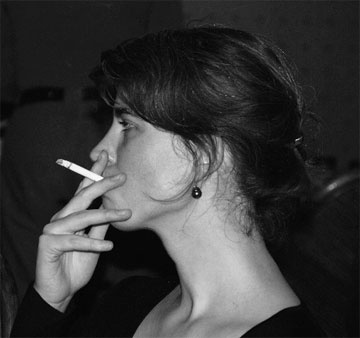Spectacle

Virtually no other concept associated with ’68 retains, to cultural producers, as untainted and close an association with “criticality” as that of spectacle. Often, and somewhat infelicitously, applied today to phenomena of event and adventure culture (or what passes for it), the concept of spectacle, more clearly than “event” or “experience”, implies a culture-critical meaning. However, there has not been, at least not outside the narrow confines of academic debate, an in-depth examination of the implications of Debord’s diagnosis and critique of a “society of the spectacle”, to which the respective culture-critical discourse sometimes more, sometimes less explicitly refers. Instead, precisely the obvious totalizing trait of this diagnosis seems to lend itself only too easily today to those who relabel their perceived political powerlessness into radicalness; a radicalnesss, however, that is by now little more than a specter of what was once heroic melancholia: we all are part of the spectacle, yet we denounce it. Used in this way – as a vacuous and gratuitously radical formula – the critique of the spectacle blocks the very insight into the economic and political realities it lays claim to.
This is the case even when one examines the implications of this critique a little more closely. For even in Debord, the critique of the spectacle, at its systematic core, is not nearly as specifically about capitalism as it presents itself. In fact, it is part of an extraordinarily long tradition, going back to Plato, of social critique that is radically critical of representation and oriented by the problematic utopia of social authenticity. This utopia is problematic because it bears latent or manifest traits of authoritarian collectivization even where it conceives of itself as democratic. The most pertinent examples are probably Rousseau and Marx. This problem has been explicitly recognized as such in the reflection on the experience of totalitarianism in the 20th century, and stands at the center of contemporary theories of democracy; it defines Claude Lefort’s thinking of division, or of conflict, as much as Jacques Rancières thinking of disagreement and Jacques Derrida’s thinking of différance.
In this theoretical lineage, then, the problem of our day presents precisely not as one of division, as seems to be the assumption behind the demand, which traces itself back to Debord, for more immediate “relationality” in the context of art. While some cultural producers on the left – untouched, it seems, by the state of political reflection just mentioned – continue to dream the dream of an innocent society rid of any and all conflict, and thus in no need of stable forms of political representation, political theory is precisely about the defense of divisions: of social conflict as much as – and the two are intertwined – of the distance between power and society, as it presents in the symbolization of conflict in political representation. This defense is directed specifically against one ideological formation, that of neo-liberalism, in which power is legitimized no longer because it lends expression to conflict but by recourse to economic necessity. It is a closely related issue that this power, which legitimizes itself through its own powerlessness, tends to identify itself with the image of a “classless society” – though “classless” now in a neo-liberal understanding of the term – that includes even the last poor devil by granting him the potential of self-realization. Yet not only is social division thus reduced to mere facticity, and that is, effaced as conflict: the distance between power and society is also reduced so much as to become unrecognizable.
In view of a situation in which democracy, as Rancière puts it, is at risk of being subverted into a “post-democracy” – insofar as the divisions in it (those within or of society as well as those between power and society) are being negated – the critique of the spectacle is doubly untimely. It participates in the utopia, problematic in itself, of social authenticity, unaware that the latter’s central motifs have in the meantime been adopted by the opposing side. What is needed, by contrast, is a renewed exposition of the divisions, one that sharpens them into conflict and distance. Yet this is not the end of the critique of representation but in fact its beginning. To the extent that there exist modes of neo-liberal representation that, by suggesting an “encompassing visibility” of everything (Rancière), obviate a presentation of the conflict, a critique of representation is needed, in the original sense of an activity of discrimination. Yet as the diffuse discourse of the dominance of the spectacle, due its totalizing traits and problematic implications, blocks such a critique, it should be suspended indefinitely.
(Translation: Gerrit Jackson)
